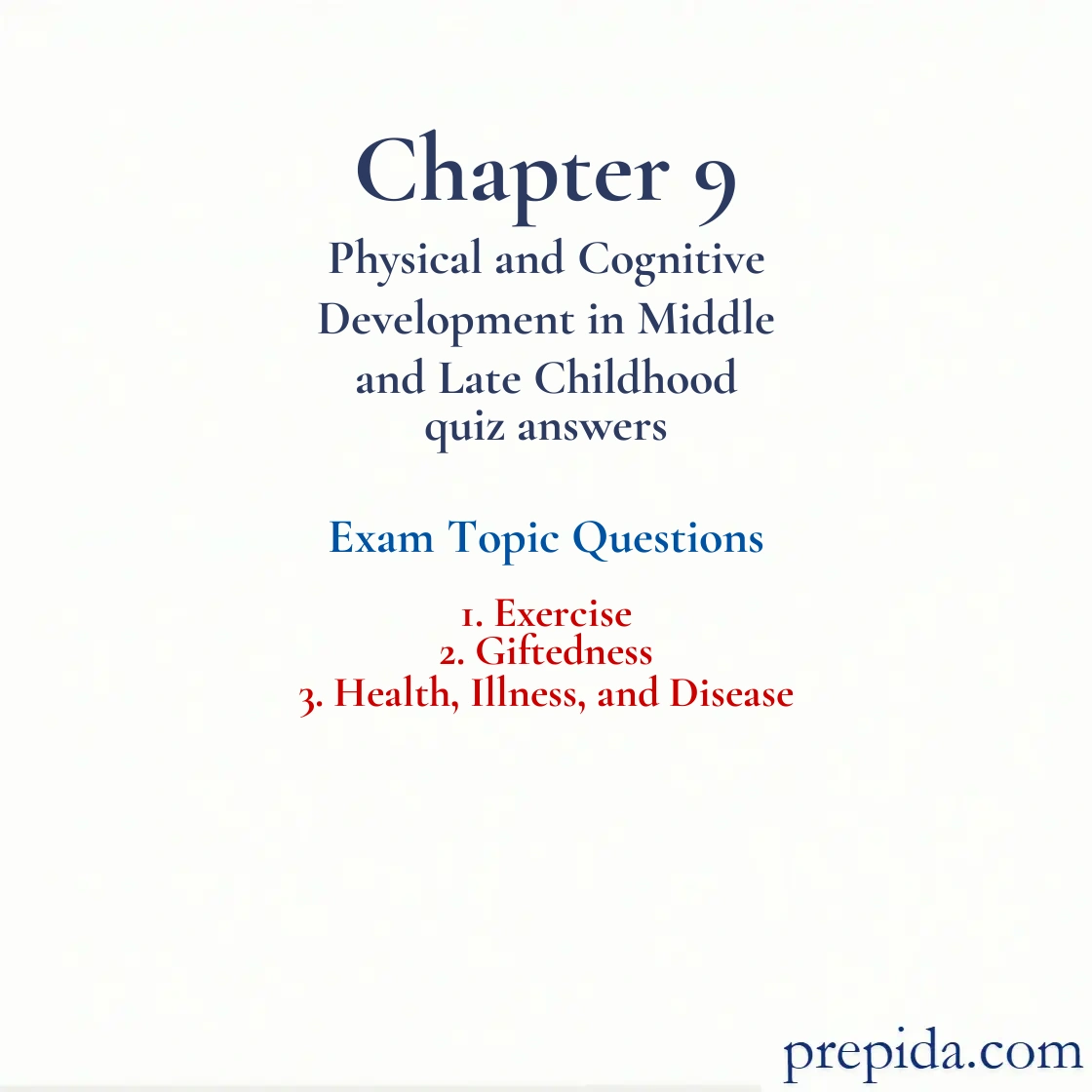
During a workshop for mothers, one of the topics of discussion was the increasing use of cell phones and other gadgets by children. During the session, the speaker requested parents to monitor their children's screen time and stressed the importance of exercise in a child's physical development. She requested parents to exercise more often so that their children would be encouraged to spend less time with their gadgets and more time involved in physical activities. Which of the following statements explains why the speaker put forth this request?
- Studies show that screen time is associated with higher levels of language skills and cognitive control.
- Studies show that a higher level of screen time increases the risk of obesity for low- and high-activity children.
- Studies show that screen time is linked with high activity and stable sleep patterns in children.
- Studies show that screen time is associated with higher connectivity between brain regions.
Fiona, a ten-year-old girl, is an outstanding flautist and has an IQ of 140. Fiona is
- an anomaly.
- gifted.
- sagacious.
- maladjusted.
Gifted: Having above-average intelligence (an IQ of 130 or higher) and/or superior talent for something.
According to Ellen Winner, which of the following refers to a characteristic displayed by gifted children who begin to master an area earlier than their peers?
- marching to their own drummer
- maladjustment
- precocity
- a passion to master
Gifted: Having above-average intelligence (an IQ of 130 or higher) and/or superior talent for something.
Studies support the conclusion that gifted people tend to be
- less mature than others, have fewer emotional problems than others, and grow up in a positive family climate.
- more mature than others, have fewer emotional problems than others, and grow up in a positive family climate.
- less mature than others, have more emotional problems than others, and grow up in a negative family climate.
- more mature than others, have more emotional problems than others, and grow up in a negative family climate.
Emotion: Feeling, or affect, that occurs when a person is in a state or interaction that is important to him or her. Emotion is characterized by behavior that reflects (expresses) the pleasantness or unpleasantness of the state a person is in or the transactions being experienced.
Which of the following statements is true of giftedness?
- Signs of high ability of an individual in a particular area do not manifest themselves at a very young age.
- Deliberate practice is not required of individuals who become experts in a particular domain.
- Individuals with world-class status in the arts, mathematics, science, and sports all report strong family support.
- Individuals who are highly gifted are typically gifted in many domains.
Gifted: Having above-average intelligence (an IQ of 130 or higher) and/or superior talent for something.
Ellen Winner described three criteria that characterize gifted children. Which of the following is one of these criteria?
- mindfulness
- self-confidence
- easily bored
- a passion to master
Children with superior talent for something are called
- gifted.
- creative.
- perspicacious.
- sagacious.
Ethan is a gifted 14-year-old boy who has an excellent academic record. He has always scored higher than his classmates in Math and can do computations much faster than any of his classmates. Seeing his potential, his teachers encouraged him to compete in interstate Math tests. He has won several scholarships through these competitions. He recently took an IQ test and found that his score of 140 was much higher than the scores of his classmates. In the light of the findings from Lewis Terman's study of high IQ children, it is likely that Ethan is
- socially awkward.
- maladjusted.
- more mature than others his own age.
- emotionally insecure.
Paul is a gifted pianist. He was always highly motivated to learn and become an artist of consummate skill. According to his mother, Paul always showed an intense and obsessive interest in learning the instrument. He was always self-motivated and never needed to be "pushed" by his parents. What characteristic, as described by Ellen Winner, of gifted children is Paul exhibiting?
- precocity
- a passion to master
- marching to their own drummer
- vehemence
Martha is writing an article about cardiovascular disease in children. Which of the following statements, if true, would be her introductory line?
- Cardiovascular disease is uncommon in children.
- Cardiovascular disease is highly prevalent in children.
- Cardiovascular disease is nonexistent in children.
- Cardiovascular disease is on the decline in children.
Chronic Disorders: Disorders that are characterized by slow onset and long duration. They are rare in early adulthood, increase during middle adulthood, and become common in late adulthood.